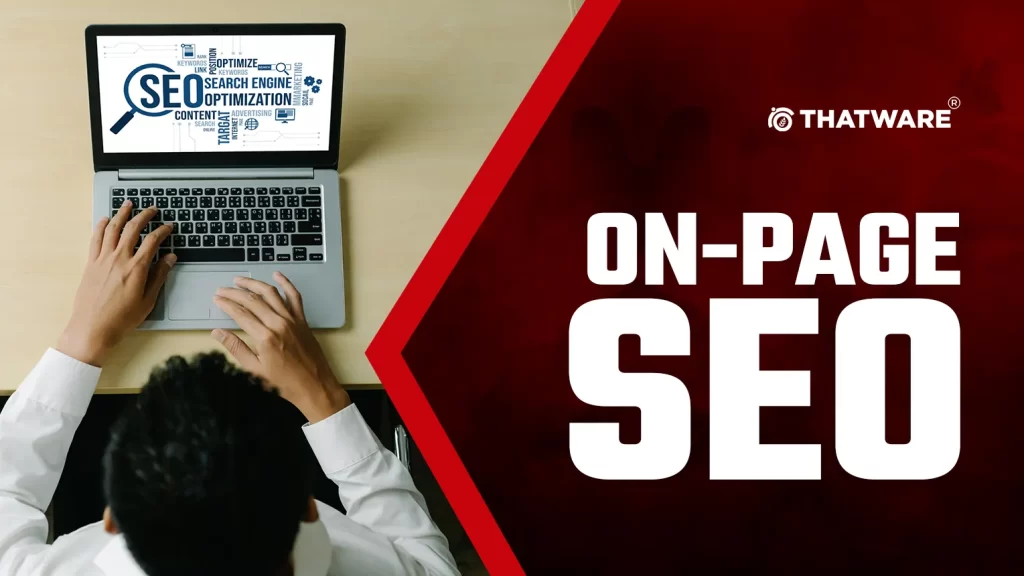FILL OUT THE FORM BELOW & ALLOW US TO TAKE YOUR SEO Services For Journalism TO A WHOLE NEW LEVEL!
Knowledge must meet the greatest number of people possible. Our culture will become stronger as more people obtain knowledge from credible sources.
That is one of the key objectives of SEO Services For Journalism, and it is what any journalist or news portal desires.
Expanding the scope of quality knowledge is especially important now, in the age of fake news.
As a result, if Google is one of the best sources of current knowledge, journalists and reputable sources must devote themselves to gaining exposure to the world’s most popular search engine.

As a result, SEO Services For Journalism is not limited to digital marketing and is now infiltrating newsrooms.
Journalists must still be concerned with fact-checking and reporting, but they must now also understand SEO, how to use keywords, and how to obtain backlinks.
👉WHAT IS SEO, AND HOW DOES IT APPLY TO JOURNALISTS?
🌟What is SEO?
Search Engine Optimization (SEO) is a multifaceted process that involves optimizing websites to enhance their visibility in organic (non-paid) search engine results. The primary objective of SEO is to increase a website’s ranking on search engine results pages (SERPs), ensuring it appears higher and more prominently for relevant search queries.
🌟The Significance of SEO in Today’s Information Landscape
In today’s information age, Google stands as the primary gateway for individuals seeking answers and information on a myriad of topics. With an unparalleled share of the global search engine industry, Google is the go-to source for millions of users worldwide. The internet serves as an expansive reservoir of knowledge, and SEO plays a crucial role in determining which information surfaces when users perform searches.
🌟Application of SEO in Journalism
🌟SEO Services for Journalism: A Path to Enhanced Visibility
In the contemporary digital sphere, the integration of SEO techniques in journalism has evolved into an indispensable tool for augmenting visibility and accessibility. The application of SEO principles is pivotal in ensuring that journalistic content, ranging from news articles, blogs, interviews, to opinion pieces, garners enhanced prominence within search engine results, notably Google.
🌟Attaining Top Positions in Search Results
The crux of employing SEO strategies in journalism revolves around the fundamental objective of securing top rankings in search engine results. This prioritization enables journalistic content to surface prominently for specific, relevant keywords. By meticulously optimizing articles and content to align with popular search queries, journalists aim to place their work at the forefront of search results, thereby ensuring higher visibility and accessibility.
🌟Amplifying Reach through Enhanced Visibility
For journalists leveraging SEO, the ultimate goal is to broaden the scope of their audience reach. By securing higher positions in search engine rankings, their work becomes more discoverable by a larger audience actively seeking information pertaining to their specialized topics. The visibility attained through superior rankings on Google’s search results significantly magnifies the potential reach and influence of journalistic content, thereby extending its impact.
🌟Importance of Strategic SEO Implementation
🌟Strategic Keyword Placement
An essential component of SEO implementation in journalism involves strategic keyword integration. Journalists meticulously select and incorporate relevant keywords in their content to align with search queries frequently used by their target audience. By strategically embedding these keywords into their articles, journalists increase the probability of their work appearing prominently in search results for those specific search queries.
🌟Enhanced Visibility, Broadened Audience Reach
The strategic utilization of SEO principles enables journalists to widen their audience base by making their work more easily discoverable. By securing top positions in search engine results, journalists enhance the visibility and accessibility of their content, thereby expanding their audience reach. This broader exposure to a diverse audience actively searching for information on specific topics amplifies the impact and influence of journalistic work.
🌟Maximizing Impact through Search Engine Prominence
The critical attribute of high-ranking search results is the heightened visibility and prominence it affords journalistic content. The objective of SEO in journalism is not solely about visibility but also about ensuring that content resonates with the intended audience, further magnifying its potential impact and influence within the digital landscape.
By implementing strategic SEO practices, journalists are able to optimize their content effectively, ensuring it is easily discoverable and attains top positions in search results, thereby expanding its reach and impact among a larger audience actively seeking credible information and news.
🌟Strategies for SEO Implementation in Journalism
🌟Optimizing for Keywords and Relevance
A cornerstone of SEO implementation in journalism involves strategically incorporating relevant keywords into articles. Journalists aim to comprehend the language and terminologies used by their target audience when seeking information in a specific field or topic. By seamlessly integrating these keywords into their content, journalists increase the probability of their work surfacing in search results for these specific queries.
- Keyword Research and Integration: Understanding audience search patterns is crucial. Journalists conduct extensive keyword research to identify popular and relevant search terms. Incorporating these keywords in strategic positions within their content improves visibility when users search for related topics.
- Contextual Integration of Keywords: Skillfully embedding keywords within the content without compromising the natural flow of the article is essential. By maintaining coherence and relevance, journalists enhance their content’s visibility and appeal to both readers and search engines.
🌟Content Quality and User Relevance
For effective SEO implementation, content quality plays a pivotal role. Google values high-quality, informative, and trustworthy content. Journalists strive to create articles that demonstrate expertise, reliability, and deliver substantial value to their readers. Adhering to the EAT principle (Expertise, Authoritativeness, Trustworthiness), journalists ensure their content aligns with Google’s criteria for superior information, enhancing the likelihood of securing higher rankings in search results.
- Quality of Information: Crafting articles that provide comprehensive, reliable, and expert insights ensures content meets the expectations of both readers and search engines. High-quality content not only engages audiences but also gains trust and credibility, elevating its ranking potential.
- Maintaining Authoritative Voice: Establishing authority in content creation is crucial. Journalists aim to present content in an authoritative tone, backed by verified information and reliable sources. This contributes to enhancing the credibility and trustworthiness of their work.
🌟Optimizing Technical Aspects of Journalism Websites
Technical SEO serves as the bedrock for effective optimization. Ensuring websites are easily discoverable, accessible, and navigable for search engine bots is fundamental to the SEO strategy. This involves addressing various technical aspects, such as user-friendly URLs, optimized page loading speeds, structured content hierarchies, and the effective utilization of metadata, among other technical considerations.
- Crawlability and Indexing: Enabling search engine bots to effectively crawl and index website content is critical. Optimizing technical aspects ensures that search engines can comprehend and rank content accurately, thereby improving its visibility.
- Website Performance Enhancement: Focus on improving the technical performance of websites, ensuring swift loading times, mobile responsiveness, and efficient navigation. By enhancing user experience and technical functionalities, journalists boost the chances of their content ranking higher in search results.
By implementing these strategies, journalists can effectively optimize their content, ensuring it aligns with search engine preferences and standards. This optimization not only enhances content visibility but also ensures it resonates with the intended audience, expanding its reach and impact in the digital realm.
🌟WHAT ARE SOME OF THE BENEFITS OF SEO FOR JOURNALISTS?
SEO Services For Journalism is one of the solutions for adapting the media sector to the digital age’s shifts.
If print news is losing ground to digital media, you’ll need to go online to find readers and subscribers.
Let’s take a look at these benefits!
🌟VISIBILITY IS ESSENTIAL.
SEO Services for Journalism focuses on elevating a website’s visibility by securing prominent positions in search engine results, particularly on the first page. When a website appears among the top search results, it becomes more easily discoverable by users seeking information related to journalistic content, thereby increasing the site’s visibility.
🌟Role of First-Page Rankings
Securing a position on the first page of search results is paramount. Users often tend to click on links appearing prominently on this initial search page. SEO efforts aimed at securing such positions enable users to find relevant content quickly, enhancing the likelihood of user engagement and readership.
🌟TRAFFIC THAT COMES FROM NATURAL SOURCES
🌟What Constitutes Organic Traffic
Organic traffic refers to visitors who arrive at a website via a search engine’s natural, unpaid search results. These visitors click on a link listed in search results, not as a result of paid advertising, but due to the relevance and visibility of the content.
🌟Benefits of Natural Sources
One of the primary advantages of organic traffic is that it’s not directly influenced by paid advertisements or promotional campaigns. Visitors arriving through organic search are genuinely interested in the content offered, making it a more authentic representation of user interest.
🌟Building a Quality Readership
Organic traffic largely comprises individuals actively seeking information related to the content provided. These users are more likely to engage with and value the content, potentially leading to increased readership and engagement. Organic traffic, being based on genuine interest rather than paid promotion, aids in building a dedicated readership base.
🌟Cost-Efficiency and Long-Term Impact
Another significant advantage of organic traffic is its cost-effectiveness. Unlike paid advertisements or campaigns, organic traffic generation doesn’t require constant financial investments. By consistently offering relevant, high-quality content and optimizing for search engine rankings, journalists can establish a sustainable flow of traffic over time.
🌟Authenticity and Trustworthiness
Organic traffic is a testament to the authenticity and trustworthiness of a website’s content. Users arriving organically are more likely to trust and engage with content they find through natural search results, believing it to be credible and valuable.
🌟MAKING A PROFIT
Leveraging Search Engine Optimization (SEO) isn’t solely about enhancing website visibility; it also plays a pivotal role in revenue generation, particularly for journalists and digital newspapers. One of the significant advantages of implementing SEO strategies is the potential to increase website traffic, subsequently opening avenues to monetize this increased viewership.
As the number of visitors to a website grows through effective SEO practices, there arises an opportunity to capitalize on this enhanced traffic in several ways. First and foremost, increased traffic can positively impact ad revenue. More visitors mean more eyes on the advertisements showcased on the platform. Whether it’s display ads, sponsored content, or native advertising, the higher the website traffic, the more potential there is for increased ad clicks or impressions. Advertisers are often attracted to platforms with a higher volume of engaged visitors, making these advertising spaces more lucrative and desirable.
Moreover, for digital newspapers or subscription-based content, SEO-driven traffic growth can significantly impact subscriber numbers. An increased influx of visitors provides a broader pool of potential subscribers. With more eyes on the content, a portion of these visitors might find the offerings valuable enough to opt for a subscription, thus directly contributing to revenue. Captivating these visitors through engaging, high-quality content and providing incentives for subscription can convert casual visitors into loyal subscribers.
This translates into a more stable revenue stream for journalists and digital newspapers. Subscriptions are a reliable and recurring source of income, contributing to the financial sustainability of these platforms. With the application of SEO strategies aimed at driving traffic and optimizing user experience, a digital newspaper’s value proposition becomes more apparent, enticing more visitors to transition from casual readers to paying subscribers. Subscriptions are often the backbone of many successful digital news platforms, providing dependable revenue beyond ad-based income.
SEO’s role in driving profit isn’t solely about quantity but quality too. By attracting an audience genuinely interested in the content offered, the chances of converting visitors into revenue-generating actions – be it ad clicks or subscriptions – significantly improve. Engaging content that aligns with the audience’s interests and needs becomes the key to converting traffic into profit.
Ultimately, while SEO focuses on enhancing visibility and organic traffic, its impact extends to the monetization of this increased traffic. SEO serves as the foundation upon which opportunities for revenue generation are built, allowing journalists and digital newspapers to transform heightened visibility into tangible financial returns. By strategically harnessing the power of SEO to attract and engage visitors, these platforms can effectively monetize their content, ensuring long-term financial sustainability in the dynamic digital landscape.
🌟POSSESSION OF POWER
In the dynamic digital realm, achieving top rankings in Google search results symbolizes authority and influence. The first few results in Google hold significant power and impact within the market. These top positions signal a stamp of approval from the search engine, essentially endorsing the quality, relevance, and user experience of the pages that secure these coveted positions.
Google, being the most widely used search engine, holds a pivotal role in determining which pages or websites are displayed prominently in its search results. These prime positions indicate that the content showcased possesses specific characteristics that Google perceives as meeting user expectations. This “stamp of approval” is essentially Google acknowledging these pages as high-quality, providing quick and comprehensive answers, and ensuring an optimal user experience.
High-quality content stands as a cornerstone of this authority. Content that is informative, reliable, and valuable to users often gets recognized and rewarded by search engines. Google aims to offer its users the best and most relevant results for their queries. Therefore, the pages that appear at the top of search results are typically those that fulfill these criteria. These pages are more likely to have well-researched, accurate, and factually rich content that satisfies user inquiries effectively.
Not only does the content quality matter, but the speed at which these pages deliver information plays a crucial role in their authority. Websites that load quickly and provide swift, seamless user experiences are favored. Google prioritizes user satisfaction, and part of this satisfaction includes rapid access to the information users seek. Pages that load fast and efficiently meet this user expectation and contribute to their favorability in Google’s ranking algorithm.

Moreover, the user experience offered by these top-ranking pages holds immense significance. Websites that are user-friendly, easy to navigate, and present information in a clear and comprehensible manner are highly valued. A seamless user experience is a critical factor in determining a page’s authority, as it ensures users can access the information they seek without hassle, promoting user engagement and satisfaction.
As a result, these top-ranking pages, positioned at the forefront of search results, hold an authoritative position in the market. This authority stems from their alignment with Google’s criteria for quality, relevance, and user satisfaction. Their presence at the top indicates not only their credibility but also their ability to fulfill user needs efficiently. This perceived stamp of approval from the search engine bestows upon them an elevated status, enhancing their influence and trustworthiness within their respective fields. Pages that achieve these top positions are poised to wield a considerable impact, guiding users and influencing their perceptions and choices in the digital landscape.
🌟THE FUNDAMENTALS OF SEO FOR JOURNALISTS: THE MAIN CONCEPTS TO UNDERSTAND
In comprehending SEO for journalists, it’s crucial to grasp the fundamental principles that underpin Google’s search engine functionality and its implications for disseminating information. Google’s core objective is to organize and present information across the internet, enabling users to find the most relevant and reliable answers to their queries.
One critical aspect of this task is the delivery of comprehensive and original material. Google prioritizes content that not only answers user queries but also offers in-depth, informative, and original information. For journalists, this translates to producing content that is not only factually accurate and insightful but also adds value to the user experience.
Consulting and citing trustworthy sources is another essential aspect. As information and news are disseminated, it is vital to verify facts and cite credible sources to ensure the accuracy and credibility of the content. Google recognizes and values content that references authoritative sources, contributing to the overall reliability and trustworthiness of the material.
Additionally, Google places significant emphasis on the technical aspects of content presentation. This includes ensuring that web pages load quickly and function optimally on various devices. Pages that are well-optimized for performance, with quick loading times and seamless functionality across different devices, are favored by the search engine. For journalists, this underscores the importance of not just creating high-quality content but also ensuring its accessibility and usability for all users.
Furthermore, Google is deeply concerned about combating the spread of misinformation and fake news. The search engine continually refines its algorithms to prioritize authentic and trustworthy content. For journalists, this underscores the critical responsibility of producing content that is accurate, fact-checked, and aligned with ethical journalistic practices. Creating content that aligns with these values and standards enhances the chances of visibility and credibility in Google’s search results.
As Google aims to protect users from unreliable and misleading information, journalism stands at the forefront of providing accurate, relevant, and trustworthy content. By adhering to these fundamental principles, journalists can align their content with Google’s guidelines, ensuring their material is not only accessible and engaging but also reliable and valuable to users. This understanding forms the bedrock for journalists to effectively apply SEO principles, enabling them to produce content that meets the criteria for visibility, credibility, and reliability in the ever-evolving digital landscape.
🌟ON-PAGE SEO AND OFF-PAGE SEO ARE TWO TYPES OF SEO.
In the realm of Search Engine Optimization (SEO), understanding the distinction between on-page and off-page SEO is pivotal. These two categories represent the diverse elements that influence a website’s visibility and ranking on search engine results pages (SERPs), particularly on Google.
On-page SEO primarily focuses on optimizing elements inherent to the website’s individual pages. This includes several critical factors such as the page’s title, URL structure, images, page loading speed, and most importantly, the content itself. These components play a fundamental role in determining the relevance and quality of the webpage. Search engines, especially Google, value websites that provide high-quality, relevant, and user-friendly experiences. Hence, optimizing on-page elements becomes crucial to enhance a website’s visibility and ranking.
Contrastingly, off-page SEO pertains to factors that extend beyond the confines of the website itself. It encompasses the measures taken outside the website to boost its authority and credibility. The primary off-page SEO element is backlinking. Backlinks are essentially links that lead from other websites back to the target site. Search engines perceive backlinks as a sign of a website’s credibility and trustworthiness. The rationale behind this lies in the notion that if other reputable websites are referring and linking to a particular site, it is an indicator of the site’s reliability and quality of content. Essentially, backlinks serve as a form of endorsement from other sites, thereby elevating the target site’s authority in the eyes of search engines.
Google’s ranking considerations encompass a multifaceted approach, taking into account both on-page and off-page variables to determine a webpage’s ranking in search results. While on-page SEO involves optimizing the technical and content-related aspects of a site’s pages, off-page SEO emphasizes building a network of quality backlinks from external sources. Both these strategies are integral and complementary in boosting a website’s visibility and credibility on search engines.
For a comprehensive SEO strategy, balancing efforts between on-page and off-page optimization is crucial. Ensuring that the website’s individual pages are optimized for relevant keywords, user experience, and technical elements is vital. Simultaneously, building a robust off-page SEO strategy that focuses on acquiring high-quality backlinks from authoritative websites is equally important. Together, these efforts contribute to a well-rounded SEO approach, enhancing a website’s chances of securing higher rankings and increased visibility in search engine results.
Understanding and effectively implementing both on-page and off-page SEO elements are essential for a website to secure a prominent place in search engine rankings. These practices not only enhance a site’s visibility but also solidify its credibility and reliability in the digital landscape, ensuring it stands out and appeals to both users and search engines alike.
🌟FOR NEWS WEBSITES AND PORTALS, HERE ARE SOME BASIC SEO TIPS.
Let’s look at some simple SEO tips and elements that should be optimised at all times if you want to rank higher on Google.
🌟ENSURE THE PROFESSIONAL SEO IS OF HIGH STANDARD.
Ensuring a high standard of professional SEO is foundational for a website’s optimization. Technical SEO forms the backbone of this process, dictating whether a site can be effectively crawled, comprehended, and indexed by Google’s bots, significantly impacting its visibility on the Search Engine Results Page (SERP).
A key ally in maintaining technical SEO standards is the Google Search Console, an indispensable tool for identifying various issues that might hinder a website’s performance. It assists in pinpointing crawl issues, blocked URLs, server errors, redirects, and 404 error pages, enabling swift resolution of these impediments.
Another critical aspect of technical SEO is the URL structure. Optimal URLs should be descriptive, avoiding arbitrary codes and numbers. A well-structured URL acts as a pointer, conveying to both users and search engine bots the primary subject or content focus of the page. This descriptive URL not only aids user understanding but also facilitates the search engine’s comprehension of the page’s relevance and context within the website. A clear, descriptive URL is a fundamental aspect of technical SEO, significantly contributing to a website’s visibility and understanding for both users and search engines.

🌟KEEP YOUR ATTENTION ON THE MATERIAL.
According to the search engine, a page is only deemed high quality if it has a high degree of EAT:
- Authoritativeness (the content author’s, the content’s, and the website’s authority);
- Trustworthiness (the content author’s, the content’s, and the website’s trustworthiness);
- Expertise (again, of the content author, of the content itself, and of the website).
- Your website should drive these magical terms. Journalistic articles with a high degree of EAT, according to the guidelines, written with journalistic rigour. And factually correct material to aid understanding of events.
🌟KEYWORD RESEARCH
Keywords are essential components of both content and SEO strategies. Google checked the keywords in your content to see if they fit the terms the user triggered their search. Your page is activated in the search results if this occurs.
To do so, try to understand how people search for the topics you’re talking about and what they’re looking for when they do so. Keyword analysis aids in the identification of these words.
You can use tools like Google Ads’ Keyword Planner, Google Trends, Ubersuggest, and Moz’s Keyword Explorer to conduct keyword studies.
This enhances the reading experience while also assisting Google in better comprehending your content.
🌟OPTIMIZED ON-PAGE VARIABLES
The words included in the content identified through keyword analysis.
They shouldn’t just appear in the main text. There are some other on-page features that configured for the keywords. There are three of them: the page title, subheadings, and photographs.
🌟INCLUDE INTERNAL HYPERLINKS.
Internal links, which connect pages on your website, are also part of on-page SEO.
They aid Google incorrectly indexing your pages and determining the most interesting content, as well as encouraging users to spend more time browsing your news.
🌟LOOK FOR OPPORTUNITIES TO CREATE LINKS.
Off-page SEO is all about building links.
It entails obtaining backlinks from other high-quality and authoritative websites. In order for their confidence to be transferred to your pages. It isn’t entirely up to you, but there are several tactics that can help you succeed.
🌟STRATEGIES FOR ADVANCED SEO FOR JOURNALISTS
So far, we’ve seen some fundamental SEO optimizations for journalism websites and portals. Now, how about we delve a little deeper into journalist SEO?
Any advanced advice as below!
🌟FEATURED SNIPPETS
Featured snippets are extracts from web pages that Google uses to present the best response on the SERP.
🌟GOOGLE DISCOVER.
Another great way to explore is to use Google Discover. This feature is a content feed on the Google mobile app which is focused on each user’s preferences and recommended by Google, so they don’t have to check for something.
🌟AMP
Accelerated Mobile Pages (AMP) is an acronym for Accelerated Mobile Pages. These are mobile-friendly pages with accelerated loading for the best browsing experience. To make them smaller, they streamlined the content and coding.
🌟PAYWALLED CONTENT
In the realm of search engine optimization (SEO) for journalists, the subject of paywalled content remains a debated issue. The introduction of paywalls, while a potential revenue stream for media outlets, poses a challenge in the context of user experience and SEO strategies. Paywalls, by design, limit access to specific content, often prompting users to pay for full access to articles or information. However, the implementation of these paywalls raises concerns as they can hinder the overall user experience.
From an SEO perspective, paywalled content can pose challenges. While the strategy might seem beneficial for generating revenue, it could adversely affect the website’s performance in search engine rankings. Search engines prioritize user experience, and when content is hidden behind a paywall, it restricts access for both users and search engine crawlers, potentially impacting the site’s overall visibility and accessibility. Limited access to content can reduce the website’s potential reach and limit its exposure to a wider audience, affecting its performance on search engine results pages (SERPs).
Optimizing a news website for better rankings involves various strategies, and while paywalls might have their merits in revenue generation, they need to be carefully considered within the broader context of user experience and search engine visibility. Striking a balance between monetization and providing valuable content accessible to both users and search engines is crucial for successful SEO in the journalism landscape.
At ThatWare, a comprehensive digital strategy can be refined, encompassing SEO and content experience. Consulting with experts at ThatWare can provide invaluable insights and guidance on optimizing news websites for better rankings while considering factors like paywalled content. Engaging with professionals who understand the nuances of SEO and user experience in the journalistic context can be instrumental in navigating the challenges of paywalled content while ensuring a balanced approach that enhances both the website’s visibility and the user’s browsing experience.
In conclusion, while paywalls present an opportunity for revenue generation, they warrant a careful assessment in the context of SEO for journalists. Striking a balance between revenue goals and preserving a positive user experience, in tandem with optimal search engine visibility, is essential for effective SEO strategies in journalism. Seeking guidance from experts like ThatWare can offer invaluable insights and a balanced approach to refining digital strategies for news websites.


